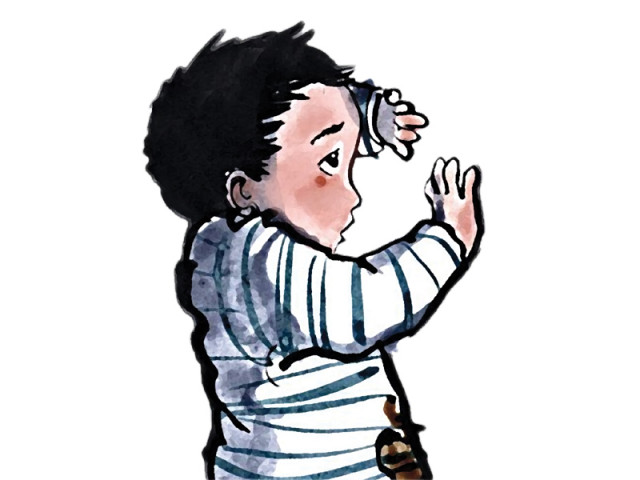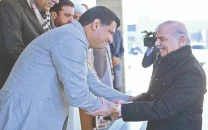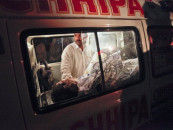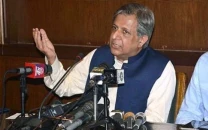It takes a village—but where is Pakistan’s?
One in four Pakistani children at risk of poor development, new study warns

Imagine a child born in Pakistan today. By the time they are an adult, they’ll only be able to reach 41 percent of their potential because of challenges they face, such as lack of access to good health, education and nutrition, early stimulation and responsive caregiving, and safety and security.
The largest loss in this potential happens in the first few years of life. It’s as if a child starts life with the potential of a high-performance sports car, but because they do not get the right fuel, maintenance, or training, he/she might only end up performing like a run-down dabba Suzuki, running at less than half its capacity.
Children who get the best start in life are more likely to be happy, productive and socially integrated youth and adults. Therefore, the first few years of life are extremely important in human development. It is a time where more than one million neural connections are formed each second as children interact with their environments–a pace never to be repeated.
The quality of a child’s early experiences, especially the nurturing and stimulation they receive, makes a critical difference in brain development and sets the foundation for behaviour, learning, health, and ultimately opportunities for lifetime.
This makes early childhood a time of great opportunity, but also of great risk because when children aren't given the right conditions to thrive, the consequences can be severe for them and their families, as well as for society as a whole.
A pioneering study by researchers from the Aga Khan University and the University of British Columbia in Canada, published in the Early Childhood Research Quarterly Journal, studied the developmental health of children in early years in Pakistan. The study surveyed thousands of children three to eight years old across 397 public schools in Sindh and found that one in four children in Pakistan are at risk of poor development and one in ten are at risk in at least one of developmental domains such as physical, social-motional or cognitive development.
Findings further showed that children who experienced social disadvantages such as poverty, language, being of a minority background, and lower levels of maternal education were more at risk of poor development.
We know that children growing up in poverty who face numerous challenges, including inadequate nutrition, unsafe housing conditions, and scarcity of opportunities to play and learn, often have physical and mental health problems. Beyond these physical conditions, parental stress arising from income insecurity and lack of education also negatively impact family dynamics, parenting styles and daily interactions with children.
Worse yet, these children who face adverse early childhood conditions are more likely to pass on these deprivations to future generations, continuing the inter-generational cycle of poverty.
Children speaking only non-dominant languages other than Urdu, Sindhi and Punjabi in the study were shown to do more poorly in social skills and cognitive and language development. Research has shown that children’s development and well-being are positively impacted when they learn and receive care in their native language.
Further, protective factors like household wealth, higher levels of maternal education, and a nurturing home environment characterized by activities such as reading, storytelling, and playing were less common in homes where a minority or indigenous language was spoken.
These issues, from inadequate nutrition and unsafe homes to parental stress and language barrier, are not isolated problems. Instead, they highlight a systemic issue. Evidence shows that in countries where social and human development aren't prioritized, children remain at risk of poor development or not achieving their full development potential. These disadvantages mean some children are forced to carry more weight and jump over more hurdles than others in life's race, creating undue stress and strain on both children, their families and their progeny. It leads one to wonder – is it a child's fault to be born into a poor family? The answer is obviously, absolutely not. So, the urgent question then becomes: what steps can we, as a community and a nation, take to level this playing field, truly giving all children the strong start they deserve?
There's a proverb that it takes a village to raise a child. In Pakistan, with our strong collective cultural orientation and deep-rooted values of communal living, our communities are uniquely positioned to be that 'village.' This could begin simply by establishing makeshift, community-based early learning centers, utilizing readily available spaces like a madrassa, a mosque, a wedding hall, or even a room or balcony in a neighbor’s home. Within these spaces reading circles, story times, and playgroups could be offered in local languages in line with our diverse cultural traditions of Pakistan in addition to exchange of ideas and tips to add to a child’s daily routine to enrich caregiving. Such programs, by being deeply embedded in the local community, also offer a safe and accessible space for families, especially women to bring their children and in turn encourage women’s empowerment. Ultimately, these grassroots efforts can be further strengthened and institutionalized through partnerships between government, private organizations, and academic institutions, ensuring sustainability and long-term impact. An apt example of this model are the Early Childhood Development Centers in the remote villages of Chitral. These examples shows that coordinated grassroots efforts by civil society can play a crucial role in giving children in Pakistan a start in life they deserve and could also complement efforts by the government in this regard.
Investing in early years isn't just a feel-good idea; it's smart economics. Global estimates show that for every rupee we spend on a child's early development – things like good nutrition, early learning, and a safe and nurturing environment – we can expect a 13-fold return.
Salima Kerai is a post-doctoral fellow at the Centre for Global Child Health, The Hospital for Sick Children























COMMENTS
Comments are moderated and generally will be posted if they are on-topic and not abusive.
For more information, please see our Comments FAQ